Of the 20 North Carolina sites in the new report, six are in Western North Carolina — including the nonprofit’s No. 1 site, Interstate 40’s path through the Pigeon River Gorge.
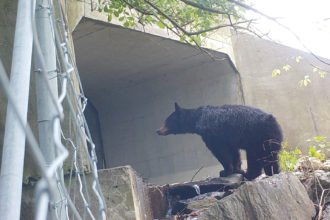

Of the 20 North Carolina sites in the new report, six are in Western North Carolina — including the nonprofit’s No. 1 site, Interstate 40’s path through the Pigeon River Gorge.
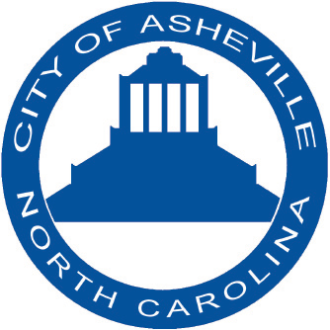
The first phase, which could be voted on as early as December, would prohibit the use of plastic bags for curbside leaf collection.

“Mountain Xpress readers: Please attend the Sept. 27 meeting and urge Asheville City Council to take immediate action to protect public health and the environment.”

“Building more housing — in places where communities, jobs, transit, infrastructure and amenities already exist — is by consensus a key component of the fight against the climate crisis.”
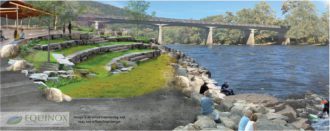
The funding represents the final amount needed for the $30 million project, which has been under development since 2011. The money will go toward constructing 5 miles of greenway along the French Broad River and Beaverdam Creek, as well as park facilities and a wave feature for whitewater enthusiasts.
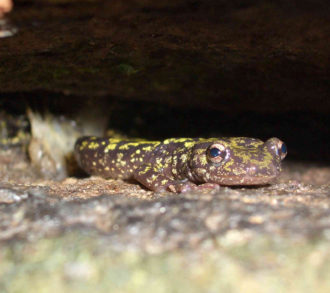
“We were willing to match any price bid on the value of the cut timber in exchange for what would amount to a 100-year carbon lease on those acres.”

“MountainTrue believes the primary sources driving E. coli and water quality impairment are failing septics, animal agriculture and urban stormwater runoff.”
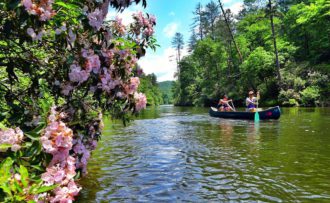
The land, purchased by Conserving Carolina, falls roughly halfway between the current Island Ford and Hap Simpson Park access points, which are separated by nearly 10 miles of river. Morrow Landing’s placement will therefore facilitate shorter trips by less experienced river users and improve access for emergency responders.
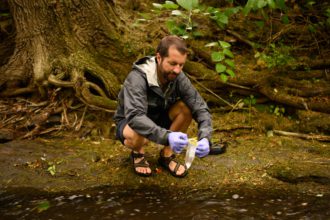
Nothing sparks an online debate among Asheville-based social media groups faster than a question concerning the cleanliness of the French Broad River.
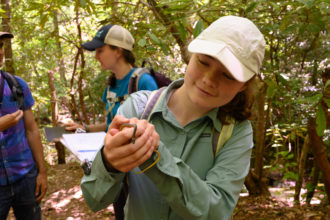
“By expanding the blitz to four counties and making a game of it, we hope to be able to engage more people and find more species,” said MountainTrue Public Lands Biologist Josh Kelly. “We might even find some that have never been recorded in our region.”

In the world of philanthropy, digital currencies are all the rage. “Don’t leave your donors hanging without an option to donate cryptocurrency,” the National Council of Nonprofits urges on its website. The Chronicle of Philanthropy sells a digital collection titled Accepting Gifts in Cryptocurrency: What You Need to Know. Other respected groups and experts also […]
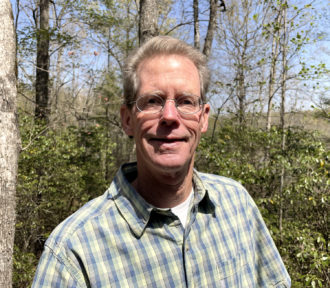
Local resident Greer Gunby reflects on his volunteer work with MountainTrue.

“If the purpose of the initiative by MountainTrue and the Sierra Club is to reduce single-use plastics, why are they proposing a 10-cent charge for paper bags?”

“Because the presence of a pollutant that is harmful to both human health and the environment has been documented in our region (we have the water samples to prove it), Asheville and Buncombe County not only have the power to act, they have a legal duty to protect its residents.”
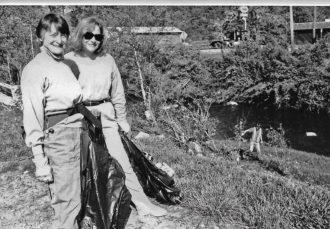
“Wilma Dykeman’s shadow covered all of us and inspired us to speak out and support citizens who were becoming more and more concerned about water quality, air quality, land use, land conservation, forest management, etc., in our mountain area.”
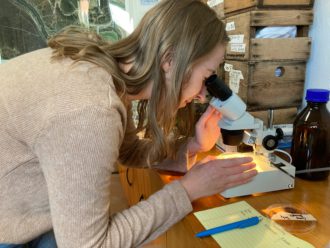
A study conducted by MountainTrue found an average of 19 microplastic particles — pieces smaller than 5 millimeters, formed by the breakdown of larger plastics — per liter of water in local river systems. Exposure to microplastics has been tied to allergic reactions and other health impacts in humans, as well as negative effects on fish.

“Development in places with preexisting infrastructure is a crucial strategy for combating sprawl.”
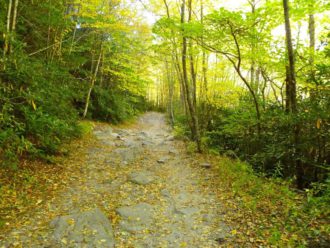
The Southern Environmental Law Center plans to file an objection over acreage perceived as being left at risk under U.S. Forest Service plan for Western North Carolina’s national forests.

“The greatest hurdles in this work have been educating the public in how our plants, pollinators and terrestrial wildlife are being harmed by nonnative invasive plants, and in convincing retailers to stop selling such species.”
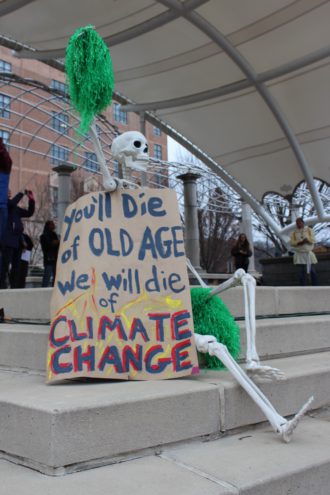
In fiscal year 2019-20, the most recent year for which data is available, the city emitted the equivalent of roughly 18,000 metric tons of carbon dioxide. Its target for the year was approximately 15,600 metric tons of CO2, about 15% less than the actual figure.
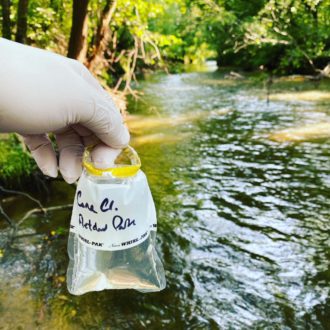
A $25,670 grant from The Community Foundation of WNC is helping MountainTrue continue testing begun last year; eventually, the group wants to be able to give rivergoers up-to-the-minute information about E. coli levels.